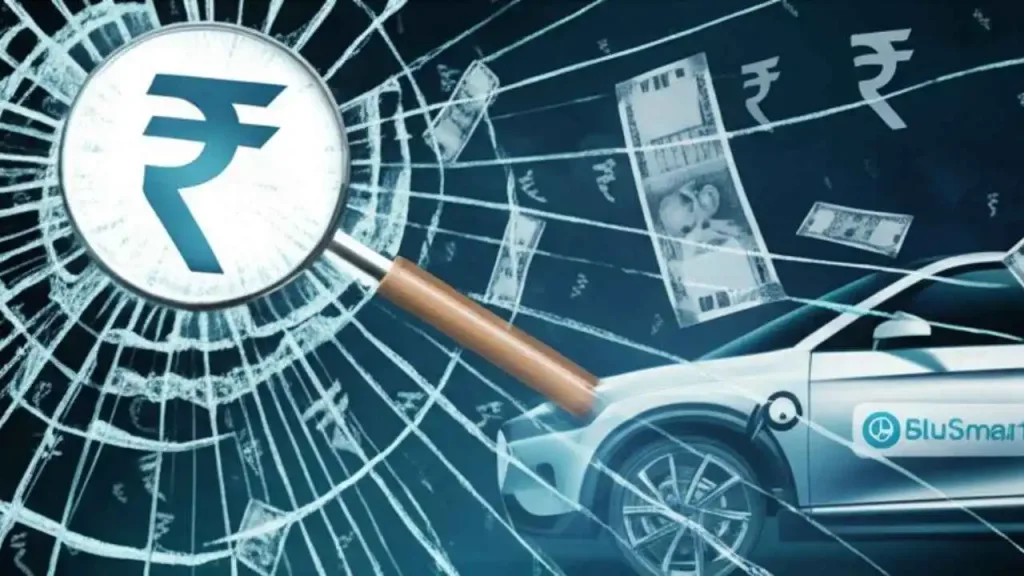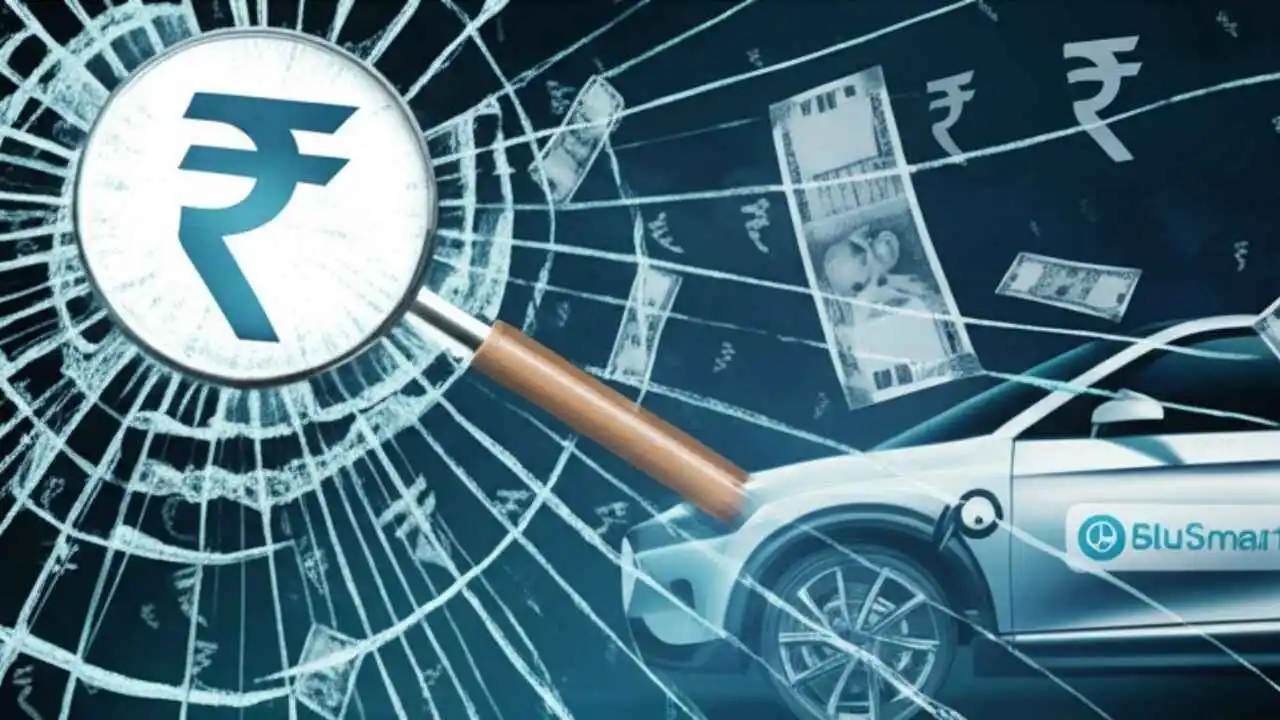Gensol’s Financial Scandal
The latest breaking story that has sent shockwaves through India’s corporate world. Today, we delve into the shocking financial scandal surrounding Gensol and its associated company, Blue Smart, revealing how a mismanagement of funds has not only led to massive losses but has also dragged prominent names like Deepika Padukone and MS Dhoni into the controversy.
In this episode, we explore how a financial mishap involving Rs. 262 crore has ignited a series of allegations, causing irreparable damage to Gensol’s business. But the scandal doesn’t end there—let’s also unpack how this controversy has dragged major celebrities into the public eye and why it’s raising important questions about India’s startup ecosystem.
The Rise and Fall of Gensol and Blue Smart: A Tale of Misused Funds and Broken Trust
Gensol, founded in 2007 by brothers Anmol Singh Jaggi and Punit Singh Jaggi, has built its reputation on sustainable energy solutions, specifically in the fields of solar power projects and electric vehicles (EVs). The company has long championed a greener future, with a diverse portfolio that includes consultancy in engineering, procurement, and construction (EPC) for solar power, alongside its work in EV manufacturing.
In addition to their solar ventures, the Jaggi brothers ventured into the mobility sector with Blue Smart, an electric vehicle fleet service designed to compete with traditional ride-hailing services like Uber and Ola. Unlike traditional taxis, Blue Smart was a beacon of sustainability, offering eco-friendly transportation in the form of electric vehicles. Backed by high-profile investors, including Bollywood star Deepika Padukone and cricket icon MS Dhoni, Blue Smart quickly garnered attention as a promising startup in India’s rapidly growing EV market.
In 2019, Blue Smart seemed poised for a breakthrough with expansion plans that included building a vast charging infrastructure and acquiring thousands of electric vehicles. The venture was on the radar of major players, and rumors even surfaced that Uber might buy the company to bolster its own electric vehicle offerings.
But beneath the surface of this rising star, something darker was brewing.
The Allegations: A Misuse of Funds and Fraudulent Activities
At the heart of the controversy is the allegation that the funds raised by Blue Smart and its parent company, Gensol, were misused by its founders. SEBI, India’s capital market regulator, issued an interim order on April 15, accusing the Jaggi brothers of diverting large sums of money meant for Blue Smart’s expansion into their personal accounts and other non-business ventures.
According to SEBI’s findings, Gensol took a Rs. 977 crore loan from Indian Renewable Energy Development Agency (IREDA) and Power Finance Corporation (PFC) to fund Blue Smart’s growth. A significant portion of this loan, amounting to Rs. 664 crore, was supposed to go towards acquiring 6,400 electric vehicles for the company’s fleet. The remaining Rs. 166 crore was to be invested by Blue Smart itself, bringing the total expected investment to Rs. 830 crore.
However, the investigation revealed that only Rs. 566 crore of the allocated funds were actually spent on vehicle acquisitions, leaving a staggering Rs. 262 crore unaccounted for. Worse, the missing funds were allegedly funneled into personal assets, including high-end properties in Gurgaon’s DLF Camellias development and investments in foreign currencies and other luxury goods.
The alleged diversion of funds came to light through a complaint lodged by one of the company’s lenders, which prompted SEBI to launch a probe into the financial activities of Gensol and Blue Smart. The scandal is now being treated as a case of corporate fraud, with the potential for criminal charges to be filed against the Jaggi brothers.

The Celebrity Connection: How Deepika Padukone and MS Dhoni Got Involved
As the investigation unfolded, the involvement of high-profile investors like Deepika Padukone and MS Dhoni drew public attention. Initially, their backing lent Blue Smart a sense of credibility and glamour, attracting further investment and media interest. Deepika’s family was among the early investors in Blue Smart, and when MS Dhoni joined the company’s Series B funding round, the startup’s prospects seemed all the more promising.
But as the financial mismanagement surfaced, so too did questions about the role of these celebrities in the company’s dealings. While there is no evidence to suggest that either Deepika or Dhoni were involved in the alleged fraud, their association with the company has inevitably placed them in the media spotlight. For now, the details of their involvement remain unclear, and SEBI’s investigation is likely to explore whether they had any knowledge of the company’s financial irregularities.
The Fallout: A Shattered Reputation and a Collapsing Stock Price
As the scandal erupted, the consequences for Gensol were swift and severe. The company’s stock, which had once been a shining star of the Indian market, saw a catastrophic collapse. Gensol’s share price, which had been trading at over Rs. 2,400 per share, plummeted by nearly 90%, dropping to around Rs. 116 per share.
This sharp decline in the company’s stock price has left investors in shock and disbelief, many of whom now face substantial financial losses. The sharp drop in share value is a direct result of SEBI’s actions, which include the imposition of sanctions on the company’s promoters and the ongoing investigation into the financial misconduct.
The Broader Implications: Trust Eroded in the Startup Ecosystem
This scandal has far-reaching implications for India’s startup ecosystem. As the country continues to emerge as a global hub for innovation and venture capital, incidents like this cast a long shadow over the industry’s credibility. Investors, particularly small and middle-class individuals who are often drawn to the promises of high returns from startup stocks, are now left to question the integrity of the market.
The Gensol fiasco serves as a stark reminder of the risks involved in investing in high-growth companies, especially when proper financial oversight is lacking. While the potential for innovation in India’s startup scene remains strong, this incident highlights the need for greater transparency, accountability, and regulation to protect investors and ensure that startups live up to their promises.
Conclusion: A Cautionary Tale for Investors and Entrepreneurs Alike
The story of Gensol and Blue Smart is a cautionary tale for both investors and entrepreneurs. For investors, it serves as a reminder to exercise caution and perform due diligence before putting money into startups, no matter how promising they may seem. For entrepreneurs, it underscores the importance of ethical business practices and financial responsibility, particularly when handling investor funds.
As the investigation continues, one thing is clear: the Jaggi brothers’ actions have not only destroyed the financial stability of their own company but also tarnished the image of India’s burgeoning startup ecosystem. And while the legal ramifications will likely unfold over the coming months, the larger question remains: How can we rebuild trust in the startup ecosystem, and who will compensate the investors who lost their money in this scandal?
As always, we welcome your thoughts and opinions in the comments section. What do you think the future holds for India’s startup sector, and how can we prevent such incidents from recurring?
